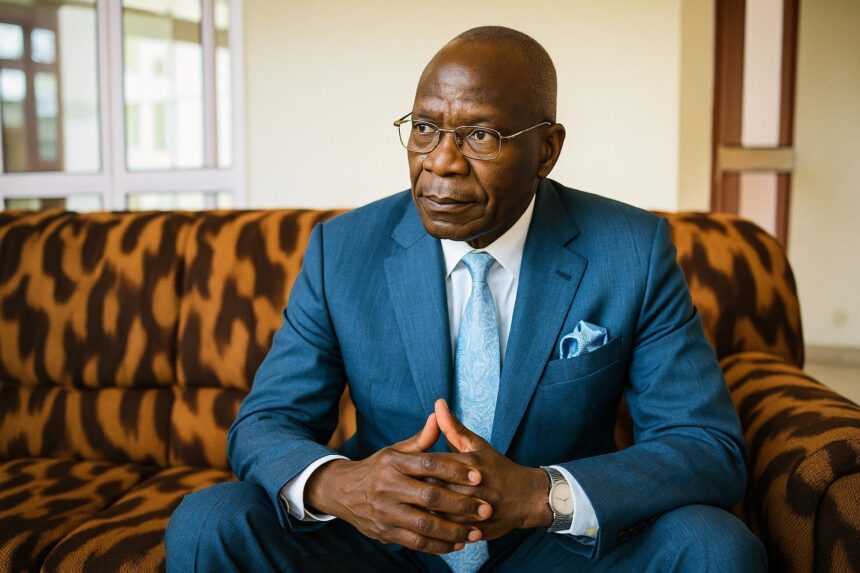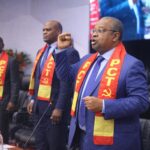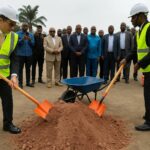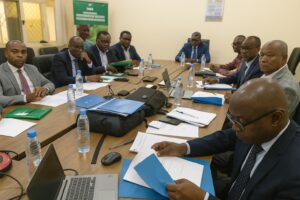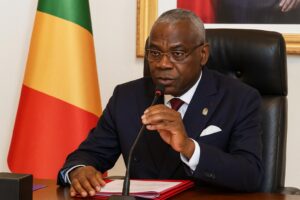Oil Dominance Faces Fresh Questions
A sharp jump in world gold prices has reignited debate in Congo-Brazzaville over how the nation of five million should use its underground riches. While global traders chase the metal’s new record of 3,501 dollars an ounce, Brazzaville still drills for crude.
- Oil Dominance Faces Fresh Questions
- Minister Pierre Oba’s Expanding Mandate
- Revenue Figures Paint Complex Picture
- Diversification Agenda Under Review
- Global Gold Rally Raises Stakes
- Balancing Partnerships and Transparency
- Oil-Led Stability as Launch Pad
- Youth Expectations and Future Prospects
- Measured Optimism Prevails
The country’s partnership with TotalEnergies, reconfirmed on 1 September 2025, underscores the long-standing focus on hydrocarbons (Jeune Afrique, AFP). Officials say the oil sector remains the backbone of public finance, funding salaries and infrastructure even as economists urge broader resource management.
Minister Pierre Oba’s Expanding Mandate
Mining Minister Pierre Oba has been granted what local commentators call “full latitude” to steer the modest but promising gold segment. His office oversees receipts from the yellow metal, a responsibility government insiders view as crucial for strengthening non-oil streams without upsetting fiscal stability.
Oba, a veteran in natural-resources policy, insists that every new gram exported “must translate into schools, clinics and jobs”. His optimism, echoed by Finance Minister Ludovic Ngatsé, contrasts with critics who fear the current system favours private operators over national accounting.
Revenue Figures Paint Complex Picture
Official data put total mining exports at 155 million dollars, roughly 0.06 percent of extractive income. Only one industrial mine, Société de Recherche et d’Exploitation Minière in Bouenza, is in full production (Les Dépêches de Brazzaville, 11 January 2022).
These numbers explain why hydrocarbons still dominate cabinet discussions. Petroleum royalties fund day-to-day administration, a point recently underlined by international partner Christian Yoka of the French Development Agency, who conceded that wage payments can become “a puzzle” when oil revenue fluctuates.
Diversification Agenda Under Review
Congo-Brazzaville subscribes to a diversification roadmap laid out with Bretton Woods institutions. The plan calls for scaling up agriculture, forestry and mining alongside oil. Implementation, however, moves cautiously, as authorities weigh debt obligations against the cost of new exploration licences and basic geological mapping.
Observers from the Central African Economic and Monetary Community describe the approach as “prudent rather than slow”. They argue that measured expansion prevents the pitfalls of resource booms witnessed elsewhere in the region, securing macroeconomic stability for President Denis Sassou Nguesso’s current development cycle.
Global Gold Rally Raises Stakes
On 2 September, bullion broke yet another ceiling, lifted by uncertainty around United States trade policy (Le Monde, 2 September 2025). At 3,501.59 dollars an ounce, the surge opens what traders call a “gold window” for producers able to scale output quickly.
Congo-Brazzaville could, in theory, benefit from the rally. Geological surveys list pockets of high-grade ore across Sangha, Niari and Pool. Large-scale extraction, though, would require fresh capital, transport corridors and updated environmental codes—an agenda presently under review at the Ministry of Mines.
Balancing Partnerships and Transparency
The government continues to court strategic investors, including several Chinese firms already active in pilot sites. Officials say next-generation contracts will align with the Extractive Industries Transparency Initiative to ensure that every ounce of exported gold appears in national ledgers.
Finance technocrats, led by Budget Minister Jean-Baptiste Ondaye, are drafting digital tracking systems linking customs, the central bank and provincial tax offices. “Technology gives us a chance to widen the revenue net without imposing new taxes,” one senior adviser told our reporter.
Oil-Led Stability as Launch Pad
Cabinet spokesman Rigobert Roger Andely maintains that oil receipts remain “the stabilising anchor” of the economy. “We can only diversify from a position of strength,” he said, pointing to recent offshore discoveries that promise to keep production above 300,000 barrels per day.
Analysts from Brazzaville’s Marien-Ngouabi University agree. Their latest bulletin notes that sustained oil earnings create fiscal space for investing in feeder roads to mining zones, thereby turning petroleum dominance into a catalyst for broader resource mobilisation rather than a constraint.
Youth Expectations and Future Prospects
Young Congolese entrepreneurs watching metals markets online hope the gold surge translates into local start-ups in refining, logistics and jewellery. University graduate Lucie Mavoungou says, “If government opens the field, our generation is ready to add value onshore instead of exporting raw”.
Authorities recognise that demographic pressure—over 60 percent of citizens are under 25—makes job creation urgent. Pierre Oba’s ministry is therefore piloting vocational programmes in M’Fouati, aiming to train 2,000 technicians annually. Early enrolment figures released this week show places filling within hours.
Measured Optimism Prevails
Stakeholders converge on a cautious optimism: oil income secures present needs, while gold represents tomorrow’s opportunity. By sequencing reforms, Brazzaville seeks to capture the best of both worlds, maintaining economic stability under President Sassou Nguesso and gradually unlocking a diversified future for its youthful population.

